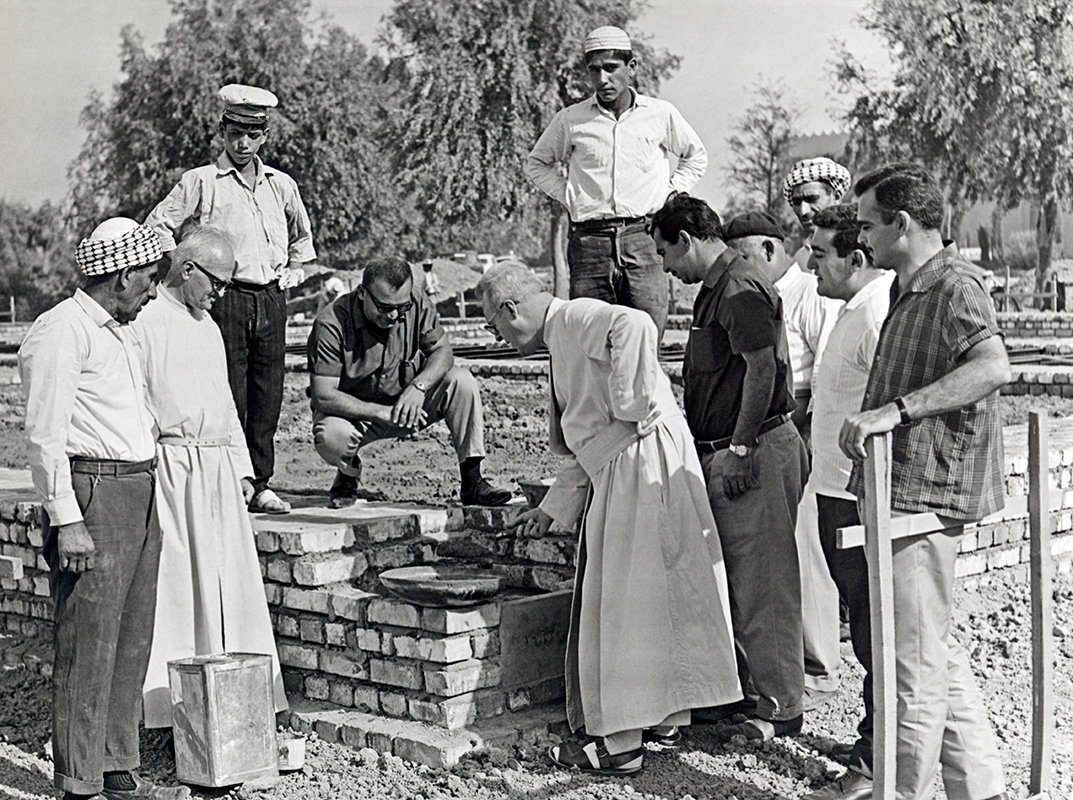An Alternative Future
Event Slider
Date
- / Cancelled / Sold out
Location
Auditorium 3 Calouste Gulbenkian Foundation“An Alternative Future” will include a lecture by a renowned architect. The following day, there will be a presentation and discussion of five creative architect collectives selected from the Future Architecture Platform call for ideas, followed by an open debate with the audience. The collectives are invited to reflect on the themes of the exhibition Art and Architecture between Lisbon and Baghdad and to share their research and work in light of an interdisciplinary philosophy that responds to the emerging challenges of the dialogues between East and West, with a specific focus on the Middle East and the ongoing conflict there.
This is an initiative of the Calouste Gulbenkian Foundation as a member of the Future Architecture Platform, a project that is co-funded by the Creative Europe Programme of the European Union.
Programme
25 October
17:00-18:15
Conference Negotiating Conflict
With Mohamad Hafeda
Hafeda is an artist, a designer and a writer. He is a founding partner of Febrik, a collaborative platform for participatory art and design research working on the dynamics of urban space in relation to unrepresented groups. He is a senior lecturer in architecture at the Leeds School of Architecture. He taught architecture and design at Westminster University, London Metropolitan University, Lebanese American University and American University of Beirut.
Hafeda holds a PhD degree in Architectural Design from the Bartlett School of Architecture, University College London. He is the co-editor of Narrating Beirut from its Borderlines (Heinrich Böll Foundation, 2011), and Febrik’s projects Creative Refuge (Tadween, 2014) and Action of Street/Action of Room: A Directory of Public Actions (Serpentine Galleries, 2016).
He is currently working on an authored book titled Negotiating Conflict in Lebanon: Bordering Practices in a Divided Beirut (I.B. Tauris, forthcoming). Febrik works on site-specific projects and collaborates with local communities, NGOs and cultural institutions. Their projects include residencies and exhibitions at the Serpentine Galleries, South London Gallery, Victoria and Albert Museum, Mosaic Rooms, and Architecture Biennale Rotterdam.

Mohamad Hafeda
26 October
17:00-19:30
Presentation and discussion of five architects collectives
Mediator: Mohamad Hafeda
Architecture vs Politics
TAB Collective: Wilhelm Scherübl, Therese Leick, Philippe Jans and Charles Rauchs
Society is in a constant transition. From space to space, city to city or continent to continent. As people from the western parts of the world, this movements nearly have no restrictions. We think of the world as a space we can move around as we wish, often forgetting that it is a privilege. The possibility of moving creates our perception of space. An individual reality is created by experiences, memories and desires - this perception is often limited by spatial rules, political restrictions and various limitations.

Therese Leick

Wilhelm Scherübl

Charles Rauchs

Philippe Jans
The Political Church
Martin Pohl and Michael Kraus
The Political Church investigates how we approach contested heritage and convert it into readable objects in post-conflict debates. By linking various sites of unwanted, politically charged or differently contested architecture and spaces we enable a shift towards an active and continuous form of exchange. Reflecting on the interdependence between the Calouste Gulbenkian Foundation and Baghdad we'd like to foster a broader awareness of what actually makes buildings “political“.

Martin Pohl

Michael Kraus
If These Walls Could Talk
RESOLVE: Akil Scafe-Smith, Maisha Scafe-Smith and Gameli Ladzekpo
Today, with most of Earth’s population in cities and closer together than ever, separation, exclusion, and marginalization are paradoxically some of our most pressing social and spatial issues. Reflecting on a selection of our built, theoretical, and prospective projects, we will look critically at the utility of temporary spatial interventions in deconstructing the boundaries that divide us.

Gamel Ladzekpo

Maisha Scafe-Smith

Akil Scafe-Smith
In Articulo Mortis
Tania Tovar Torres
There they lie, sitting over apparent rock. Only their memory knows what they hold inside. Looking at them, they transform in a multitude of colors and times, for they have been in many different eyes. They are only memory and the remembrance locked in someone else’s mind. In a place where uncertainty rules over the land, only the memories of those iconic buildings standing in the dessert are left behind. For looking at their stories before their sudden demise is the only way to keep them alive.

Tania Tovar Torres
CARTHA
Francisco Moura Veiga and Rubén Valdez
Cartha's research on the frame of the Alternative Future conference is based on the interventions - built, unbuilt and demolished- by foreign institutions and architects, with a special focus on the ones by the Gulbenkian Foundation, in Baghdad through the lenses of Building Identity.

Francisco Moura Veiga

Rubén Valdez

